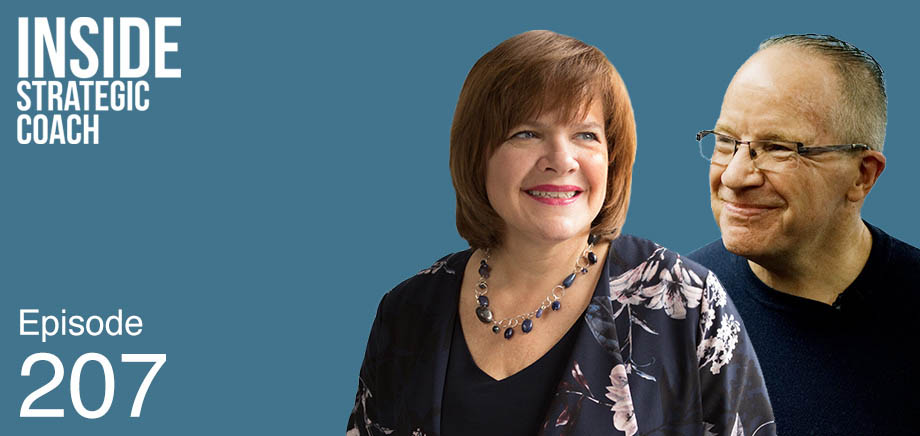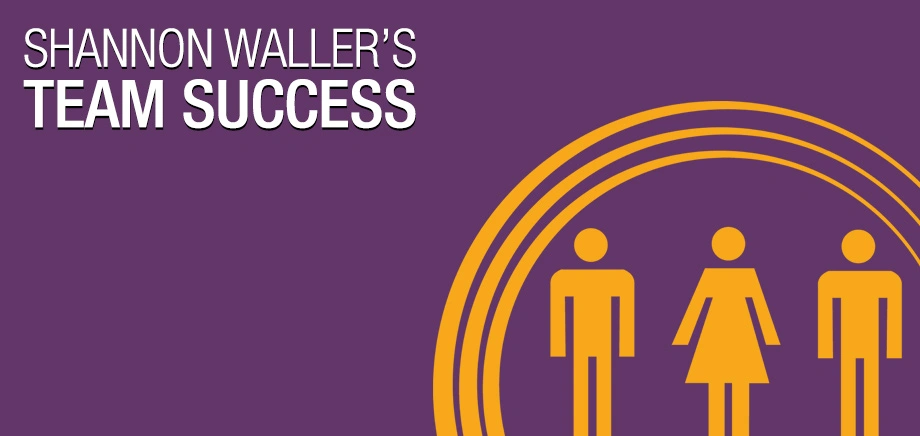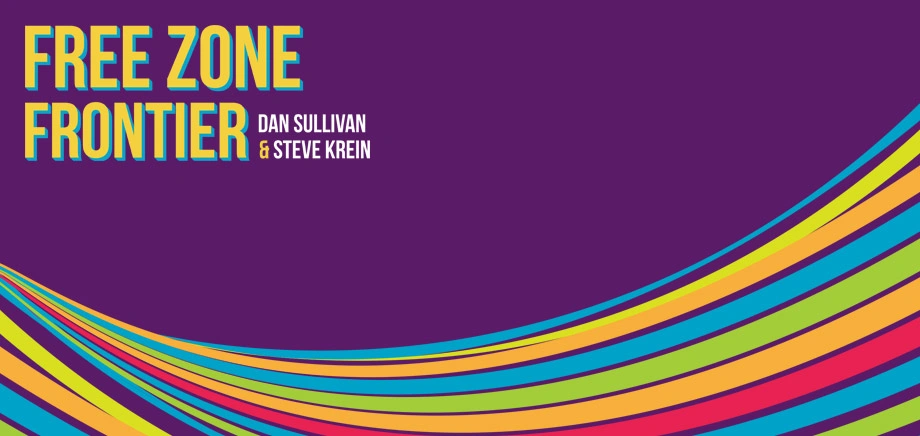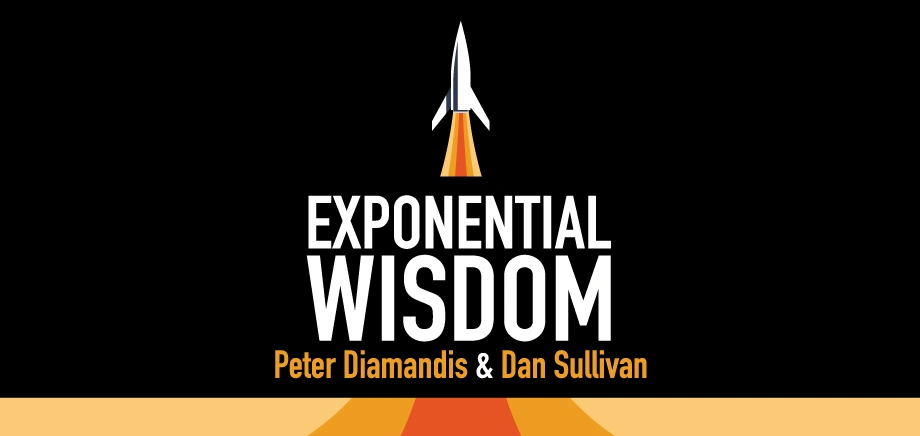The Power Of Context Over Content For Entrepreneurs
July 09, 2024
Hosted By
 Dan Sullivan
Dan Sullivan
 Shannon Waller
Shannon Waller
In this episode of Inside Strategic Coach, Shannon and Dan discuss the profound impact of setting context over focusing on content. Renowned for his ability to create powerful contexts in coaching, Dan shares insights on how this approach shapes thinking and decision making among entrepreneurs. Through real-life examples and coaching strategies, they explore how clarity of context not only simplifies complexities but also enhances community building, personal growth, and self-confidence.
Here’s some of what you’ll learn in this episode:
- The distinction between context and content in coaching and communication.
- How setting a clear context enhances decision making and clarity.
- Examples of powerful contextual frameworks in history and technology.
- The impact of context on community building and personal growth.
- Practical applications of context-setting in everyday communication.
Show Notes:
- Setting context empowers people to think independently.
- Context allows you to focus on what's most important to you rather than conforming to external influences.
- Content is what is discussed or shared, while context defines why it matters and how it relates to personal experience.
- Dan offers the example of Steve Jobs, whose ability to redefine contexts, such as with iTunes, simplified music consumption.
- Context also simplifies decision making and reduces mental clutter by providing a clear framework for action.
- Context ensures clarity in communication by explaining the purpose or relevance of information.
- Community building and productive conversations are a natural result of context-setting.
- Macro contexts, like demographic shifts and geopolitical factors, significantly impact daily experiences, such as economic decisions made at grocery stores or reactions to political messaging.
- Demographic shifts, such as the retirement of the Baby Boomer generation, are altering economic landscapes globally, and understanding demographic changes can help anticipate shifts in consumer behavior, workforce dynamics, and economic policies.
- Understanding both these contexts helps individuals and businesses navigate uncertainties and make informed decisions that align with broader trends and changes.
- Thinking about your thinking and focusing on context leads to more confidence and independence in all areas of your life.
- Contextual understanding also empowers people to resist manipulation and make informed decisions.
Resources:
The CliftonStrengths® Assessment
The Entrepreneur’s Guide To Time Management
Episode Transcript
Shannon Waller: Hi, Shannon Waller here, and welcome to Inside Strategic Coach with Dan Sullivan. Dan, we were just having a conversation around the difference between context and content. One of the things that you are superb at, and we can talk about your CliftonStrengths, is your ability to set context and how that actually eases the burden on content. And I had a circumstance yesterday that really highlighted how critical context is to people making better decisions. So that's what I want us to talk about today. So you are someone who always sets a very powerful context when you're coaching. What is your thinking behind that? Why is it that you do that?
Dan Sullivan: It's basically that the whole Coach Program is geared to creating a structure where people can think about their thinking. I mean this is what Coach is about. I was talking to some visitors at CoachCon last week. We had a big conference in Nashville and we had 350 attendees, but, you know, a fair amount of them were guests of our clients. And by the time we got to day two, some of them were saying, this is just totally different from any conference that we've ever been to. And I said, well, other conferences you go to, there's a bunch of speakers that want you to think the way that they're thinking.
Shannon Waller: Right.
Dan Sullivan: My whole idea is I want you thinking the way that you think. So I can find my role to setting up a context where you can zero in on some aspect of your life that's really important to you. And I've been coaching for 50 years. And when it comes to entrepreneurs, I've got a fair grasp of the types of situations that, in general, entrepreneurs want to think about. Okay, so all of our thinking tools are contextual tools that you fill up with your content.
Shannon Waller: All of our thinking tools are contextual tools that you fill in with your content. I don't know that I've actually thought of it exactly that way before, but so I don't know what people are writing down on a sheet of paper.
Dan Sullivan: I don't know what they're talking about, but I know the context in which they're thinking because I've established the context. Earlier this week, I had two, two hour coaching calls, Connector Calls, we call them. So I created a context. The name of the tool was You At Your 10x Best. Okay. So that's the context of what we're have you think about, you know, over the next hour is, who are you when you're at your best? And then I have two sections. I have, what are the activities that you're doing when you're at your best? And there's room for about six. And my number one role as a coach is to support entrepreneurs and focus entrepreneurs in thinking about what they're thinking, how they think about things. So there's the activities. And then in the second column, I say, what are examples of you really successfully being at your 10 best? I listed six things going back 50 years. So it's for your entire career. What are your best activities? What are your best successes? And you list them and then you say, well, what are your top three activities, what are your top three successes? And then I say, now, what insights have you gotten from identifying these two columns, filling in these two columns? Then we put them into a breakout group, threes and fours for 20 minutes. And I say, now, start with your insights that you got from thinking this through. So yesterday we had 50 on the Zoom call. They all had tremendous insights. They all had tremendous breakthroughs, okay, but I didn't know any of this until they shared it. But I did know what they were thinking about because I set up the context. That's the whole thing. Content is the what of the conversation, but context is the why of the situation. This is why we're going to think about this, okay? So what we're going to zero in on is what you do that you love doing 10 times the most. You find it 10 times the easiest to do, and other people reward you 10 times for doing it. Okay, so that's a context. So it means that you're not pulling in your love for country and Western music here. You're not talking about your latest, happiest vacation and everything else. People can think about anything unless they have a structure, because the whole point is not only for them to be clear about what they're thinking about this particular topic, but everybody's thinking about this topic and they're sharing and they're learning how other people approach these things. And one of the things they learn is that everybody's totally unique. But everybody's talking about what they do 10 times best. That's the context. So anyway, that's how I said it. And that creates community, you know, it creates community and everybody's learning from everyone else, which, you know, it's not just the relationship between me and the individual entrepreneur. It's the entire community that you've created by zeroing in on a particular context. And that's where the learning is.
Shannon Waller: Well, and it's so exciting and interesting to see what other people have written down. And, you know, that's an incredible capability that you have. And then things start to spark and people like, hmm, I'd love to work with you. Or, I mean, that community building is really evident. And it's such a great way of exploring other people's uniqueness in a very productive conversation. So one of the thoughts that I had as you were talking, Dan, is when you have that context and the common context, it's incredibly simplifying. As you said, entrepreneurs can talk about anything and everything. And I remember a conversation you and I had, you're just like, part of my job is to help declutter people's minds so that they can think clearly. So can you talk about why providing context is so simplifying? I find that fascinating.
Dan Sullivan: Yeah, because I think all of us live in a media world today and there's a thousand people, different sources that are competing for your attention and they each have their own context. Okay. So one of the most important things that you have a context that overrides everybody else's context. You see this a lot. I mean, probably the supreme contextual person in the world of technology that I've experienced, I mean, there's a lot of them, was Steve Jobs. Steve Jobs just had this ability to stop the investment world, the technological world, and he said, I've been thinking about something new, because you knew there was a new something he was going to tell you about. I use the example of when iTunes was presented, and it was because he was frustrated just getting a recording of the song that he liked, that he heard. But he had to go to a record store or a cassette store. And he had to buy a whole album to get his one song. But he said, I only wanted the one song. I didn't want the other 11 songs. So he said, how can they just use their computer in those days? Now they can do it with their phone. But how could they use their computer? Well, they were connected to the Internet. And he says, look, there's already a company out there that's illegally downloading other people's music and selling it. And he said, I admire what they've done, but it's illegal. You know, that's not a good business model. People already have MP3 players. Sony had put the Walkman. The Walkman, you know, is a great breakthrough. But you could only start off with cassettes. You had to put a cassette in a Walkman and everything. And he says, I don't want to do that. I love the Walkman. I love the fact that songs can be downloaded, but still not the way we want it. But we have on the Apple platform, we have an app that you can put your songs in there. But you can't just pull down one song. So he says, we're just going to rearrange things so that if you hear a song and you want it, you can download the song. It'll cost you a dollar for doing that. And we noticed that the artists don't get very well paid. It's already recorded, so they're already making money on it, but we're just going to give them the majority of the dollar that we charge you for doing it. And just like that, all the music in the world went to iTunes. So he got their attention. Everybody likes music. Everybody's got favorite songs. But they didn't realize until he explained that, that they were paying for a lot of songs they didn't really care about.
Shannon Waller: Yeah. So he set up a whole new context.
Dan Sullivan: Yeah, total context. Yeah. And within two years, Apple was the biggest distributor of popular music, not just popular classical music. And, you know, you like one Beethoven symphony, but you don't want to listen to the others. Okay. And if you want to download the album, you can download the album, but you don't have to go to the store to do that.
Shannon Waller: Well, and even just speaking about Steve Jobs, his whole picture of how simple and how beautiful technology could be. You know, other people saw it from kind of the techie perspective. And you remember having to do some early coding, which I was terrible at in high school, in grade 11. But he just had a whole picture of the user interface and he recognized something and then borrowed it, but he just had a whole vision for how people could interface with it that was completely different than anything else going on there. And everything just evolved from that.
Dan Sullivan: So, you know, the other thing is, I'm a sort of a political junkie and the greatest politicians are those who can sum up a general situation in just a few words. Winston Churchill is probably one of the greatest at this. After the Second World War, you know, there was this monstrous war for six years in Europe and in the Pacific, and he was no longer prime minister, so he was visiting a college in Missouri, he was invited over, and he gave a talk, and he says, you know, we think the war is over, but he said across Europe, from the north to the south, there's an iron curtain descending. And wham, this Iron Curtain, he had just divided the world between the people who were enslaved behind the Iron Curtain and then there were the free countries. He just summed up the whole world situation that people were talking about. Nobody really wanted to talk about the real issue. And he summed it up. And there were lots of people. There was media. There was other politicians who said, don't be talking about this. You know, we don't want to talk about this. He said, no, no. There's an Iron Curtain, you know. And that's radically different from one side of the Iron Curtain to the other. That's where the term Iron Curtain came down. And then another about two years later, a man by the name of George Kennan, who is high up in the American government. And he said, you know, we're used to hot wars. This isn't a hot war. This is a cold war. So Iron Curtain and Cold War just define the next 50 years.
Shannon Waller: Thank you for those examples, Dan. Those are very illustrative. There's something that happens when someone sets the context, somehow behavior or understanding or conversation alters. And one of the reasons why I wanted to talk about this today is because I had a circumstance last night where a friend of mine was working with people and this one person just would not let go of activities that he was terrible at. And then he showed them our Unique Ability video, which is a draw shot video, which I'd forgotten we had, and the context of Unique Ability. And then the guy was like, oh, oh, that's why you don't want me doing these things. And my friend was like, oh Lord, you know, I'm trying to tell you for a couple of years now, but the context of Unique Ability actually made it.
Dan Sullivan: There's that which you love doing, which you're great at, which you find easiest to do. And then there's everything else that you don't love doing. You might be competent, but you're not great at them. And other people don't value for these other activities. That's a context. That's right at the very center of Strategic Coach. So the whole point is that we've created 250 thinking tools, and each of them is a contextual tool that allows you to think about an area, 360 degrees of being an entrepreneur. And we've got 250 ways of you thinking very focused, specific, and then you just add your experience to this tool. Okay. So in a certain sense, I'm in total contextual collaboration with everybody who's in the Coach Program, because we've set out all the structures.
Shannon Waller: Without having to know their specific content.
Dan Sullivan: But we're not telling them what their experience is. They're just saying, oh, why have this experience? And it starts unifying their experience. And when people have unified experience, they're very resistant to other people trying to manipulate them, trying to persuade them. You become unmanipulated, which is a passion of mine that you're thinking should not be manipulated by other people's thinking.
Shannon Waller: Which is why it's so critical to understand your own context. Or if that's not your capability, because it's, and if you're CliftonStrengths, it's one of the most rare. So we'll talk about that in just a second. So it helps you to unify your experience, make sense of it. And then we see people make incredible jumps. They come back to see us every quarter and we see people make incredible jumps. They could have been doing the same thing for the last 10, 15, 20, 25 years. And all of a sudden they come in and they've got a tool like The Strategy Circle, which is a thinking tool and a context, which values obstacles, which I love, or Unique Ability. And all of a sudden they're like, oh, I can now do more of this. I can now do less of this. I can find a who for that. You know, all of these incredible contexts allow people that I see to dramatically accelerate their progress.
Dan Sullivan: Yeah, because they're in touch with what they think. Every time they get a clear breakthrough of what they think about a particular area of their life, they become more confident in that area of their life. You know, but it's all unique because they're taking 30, 40, 50 years, in my case, 80 years of experience. And it all fits together, you know, and that makes people very, very immune to other people's attempts to influence them.
Shannon Waller: Let's talk more about that. I know that's super important to you and actually all of us at Coach, but what's the drive behind that?
Dan Sullivan: Entrepreneurs get paid for being confident.
Shannon Waller: Yeah. And if they're being manipulated, they're not confident.
Dan Sullivan: Yeah. Yeah. You're manipulated because you're not confident about your thinking.
Shannon Waller: Nice.
Dan Sullivan: Every time you make your thinking more what you own, manipulation is only happening because you haven't taken ownership of your own thoughts. You haven't taken ownership of your own experience. And everybody's going to do that in a completely unique way. We just provide the structure for them. You know, let's talk about how you handle your time. Well, we're going to suggest that you think about your time as three days. You have days, Free days, which are completely free from all work. You have Focus days, which are totally focused on you at your best, creating the greatest value for the best clients. And then you have Buffer days, which are back stage days where, you know, you improve the back stage of your company, you prepare for new front stage experiences. But just think about it in these three ways. Instead of every day doing all three, let's just do this on this day, this on this day, and this on this day, and see what happens. You know, and I always tell people, they said, Free Day. I've never had a Free Day. I said, I know you haven't. That's why you're paying me large amounts of money, because it's causing havoc in your life. You aren't rejuvenated at work when you take what you call a Free Day. You're not actually getting refreshed. It's causing havoc with your health. It's causing havoc with your sleep. It's causing havoc with your relationships. So why don't we just take time? I mean, it's available. Everybody's got the same amount of time. You know, nobody gets more than 24 hours in a day. Why don't we just cut it off at midnight? We do this until midnight. Tomorrow we do something different till midnight and the day after. And so it's just a different context. And then they can fill up. Well, what do you do on a really great Focus Day? I do this and this and this. Not four things. I do three things. Okay, that's good. What do you do on a really great Free Day? You know this. So we said no cell phones. If you have to phone people on a Free Day, have a second cell phone. That's just for your personal life. You're not interrupted by other people. So all we're doing is taking what already exists called your day-to-day experience, and we're just dividing it into structures, which are context.
Shannon Waller: Mm hmm. Yeah, it's amazing how liberating contexts are. And I think when you're having experience that's not contextualized, it's very confusing, which leads to that lack of confidence.
Dan Sullivan: Yeah, it's interesting.
Shannon Waller: And if I compare this to other programs or things I've done, there's a lot of content, but unless I understand the context of it, I'm like, why should I do this? I'm not very open to it, which I think is something kind of missing. And I think even the part of why, again, wanted to talk about this today is I think in communication, it is so key to include the context when you are trying to get some information across. This is kind of, to my mind, the practical application of how people can take away from this conversation and apply is, how can people be more aware of setting context or whether or not they're in a good one, if that makes sense?
Dan Sullivan: Yeah. Well, this is a particularly good year to see the distinction. For example, we've passed into a new age and it has to do with the retirement of the Baby Boom generation. So since basically the late’ 40s, there's one generation, certainly in Canada and the United States and the other countries that came later, where you just had huge birth rates, and a lot of people were born. The population of the United States between 1946 and 1964 went up by about 40% just with the babies that were born in 18 years. So this has been the dominant generation since the Second World War, and it was big. It was the biggest generation, and probably there won't be another generation bigger than that one. But starting in the teens, they started retiring, and by 2029, every Baby Boomer will have crossed 65.
Shannon Waller: Wow. That's amazing.
Dan Sullivan: For most people, they're not working anymore. And at this point, they start taking money from government because now they're not producing, they're not working. So they're not contributing tax money to the government, to the country. But now they're withdrawing all their tax money that went in and all the pension money coming in. Well, it just changes the context. And this is the reason why inflation is sitting at six, seven, eight percent. And you have the president of the United States and the prime minister. saying, but we've gotten inflation down to this. And I said, it doesn't matter how you look at inflation. Most people, the economy is what happens at the grocery store and what happens at the gas station. But we're doing this program. We're doing this program. We're investing. It doesn't matter. I'm paying more at the grocery store. That's the context.
Shannon Waller: Mm hmm.
Dan Sullivan: One of the contexts is going to win. We're doing all these things for you or things are too expensive at the grocery store and at the gas station. I have to tell you one they experience every day. The other one, they only experience it when you're talking.
Shannon Waller: So true, which, you know, both of us are. Well, you turn me on to Peter Zion and just understanding geopolitics and understanding demographics. That's the bigger context. I'm not a political junkie like you are in any way, shape, or form, but I'm super interested in those greater forces that are.
Dan Sullivan: Geography and demographics. Yeah. Yeah. What's your population look like? You know, China within, I think they're almost already there. Sixty percent of their population is over 60 years old. Well, they're not having enough babies. They haven't had enough babies born for 40 years. What they're running out of now is 20-year-olds, 30-year-olds, 40-year-olds who actually do the work, who actually consume and buy things.
Shannon Waller: Yeah.
Dan Sullivan: And the Chinese themselves, they're whatever their number they're putting out about one point three billion people. And they themselves are saying by 2100, we'll have 650 million. Well, that's a huge context. You know, everything changes with demographics and they don't have a great geography. Mm hmm. They border on 11 other countries. All those countries hate the Chinese.
Shannon Waller: It's interesting, Dan, there's big macro contexts, like we're just talking about, and then there's the smaller ones that influence you, which I think is powerful. So what I'm taking away from this conversation is that when you understand the context and set the context, A, per your exercises you talked about, you can have very fascinating, powerful, interesting conversations with other people. It creates community. And then the other one is if you're someone who is a communicator, if you don't set the context, people don't get it. They need to know the why before they'll take action on your what. So those are two of my takeaways from today's conversation.
Dan Sullivan: What's different after this conversation than before?
Shannon Waller: So I wanted to mention your CliftonStrengths, your top five, Ideation, Maximizer. So Ideation is love ideas. Maximizers take good things and make them amazing. Self-Assurance, as you like to say, you can't get in trouble with a new idea. And then Context, number four, which is really making sense of the present and maybe even the future by reflecting on the past. It is one of the five most rare, CliftonStrengths. Not that many people have it, which is, you know, one of our previous podcasts was how you're the world's most practical philosopher. It's my way of thinking, and I think this is part of why. And then finally, Activator, which is, let's take action on this, shall we? So what it's done for me is just really clarify that if I am trying to communicate information, always, always, always start with the why. Why this is important, set the context. A brilliant piece of coaching for you is say, and you'll say it better, but I never try to get people to embrace a new idea until they've first reflected on how they've experienced it in the past. And I think that's so powerful as a coach to know that. I don't throw people in the deep end. So, yeah, you can explain that better than I can.
Dan Sullivan: I mean, the big thing is in our workshops, we give people a lot of time to think about their thinking. You know, actually, we're very, very economical, you know, in all of our workshops about what we actually say. And the more you're just introducing thinking tools, you're being very, very elegantly economic. You know, I'm just asking you some questions here, but I'm going to have all of you think about this question, and then a series of questions, and you're going to be relating your answers from one question to another answers, and then you're going to get overall insights, and from that, you're going to be thinking in an entirely new way, and then talk about to other people in the workshop, talk about how you're thinking about something new and a new way, and then they'll benefit from your thinking and you'll benefit from their thinking. And then we're just going to share in the general thing. I haven't said very much. The last that I have to do talking in a workshop measures the success of the workshop.
Shannon Waller: Yeah. And this is the thinking about your thinking. It's like context just allows you to make sense of your experience. And that's what our thinking processes and our thinking tools.
Dan Sullivan: Yeah, we did a podcast, you know, not too far in the past where I said I wasn't trying to create a program for entrepreneurs. I was trying to create a program for people who wanted to think better. And the only people who showed up were the entrepreneurs. And the reason, as they develop a new mindset or they develop new confidence, it pays off immediately and increases cash flow.
Shannon Waller: My other takeaway, Dan, is that, you know, when people can unify their experience and become more confident, and they're thinking about their own thinking, not someone else's thoughts, super important, that they're not manipulated. They're more immune from being manipulated. So that's my final takeaway. Dan, this is fascinating. Thank you so much for explaining context versus content. I always find these conversations enlightening. So thank you for that.
Dan Sullivan: Thank you, Shannon.
Related Content
The Impact Filter
Dan Sullivan’s #1 Thinking Tool
Are you tired of feeling overwhelmed by your goals? The Impact Filter™ is a powerful planning tool that can help you find clarity and focus. It’s a thinking process that filters out everything except the impact you want to have, and it’s the same tool that Dan Sullivan uses in every meeting.







